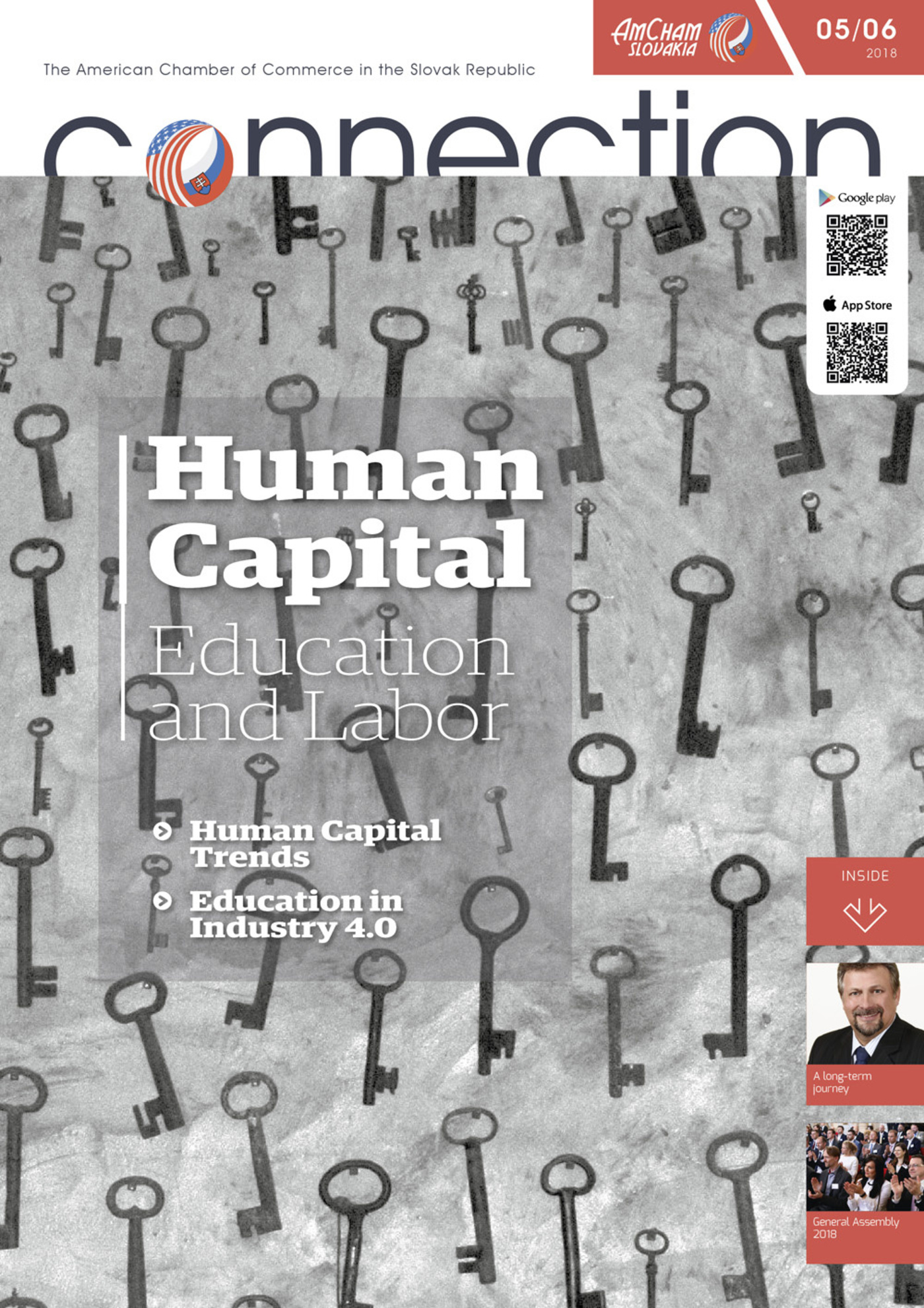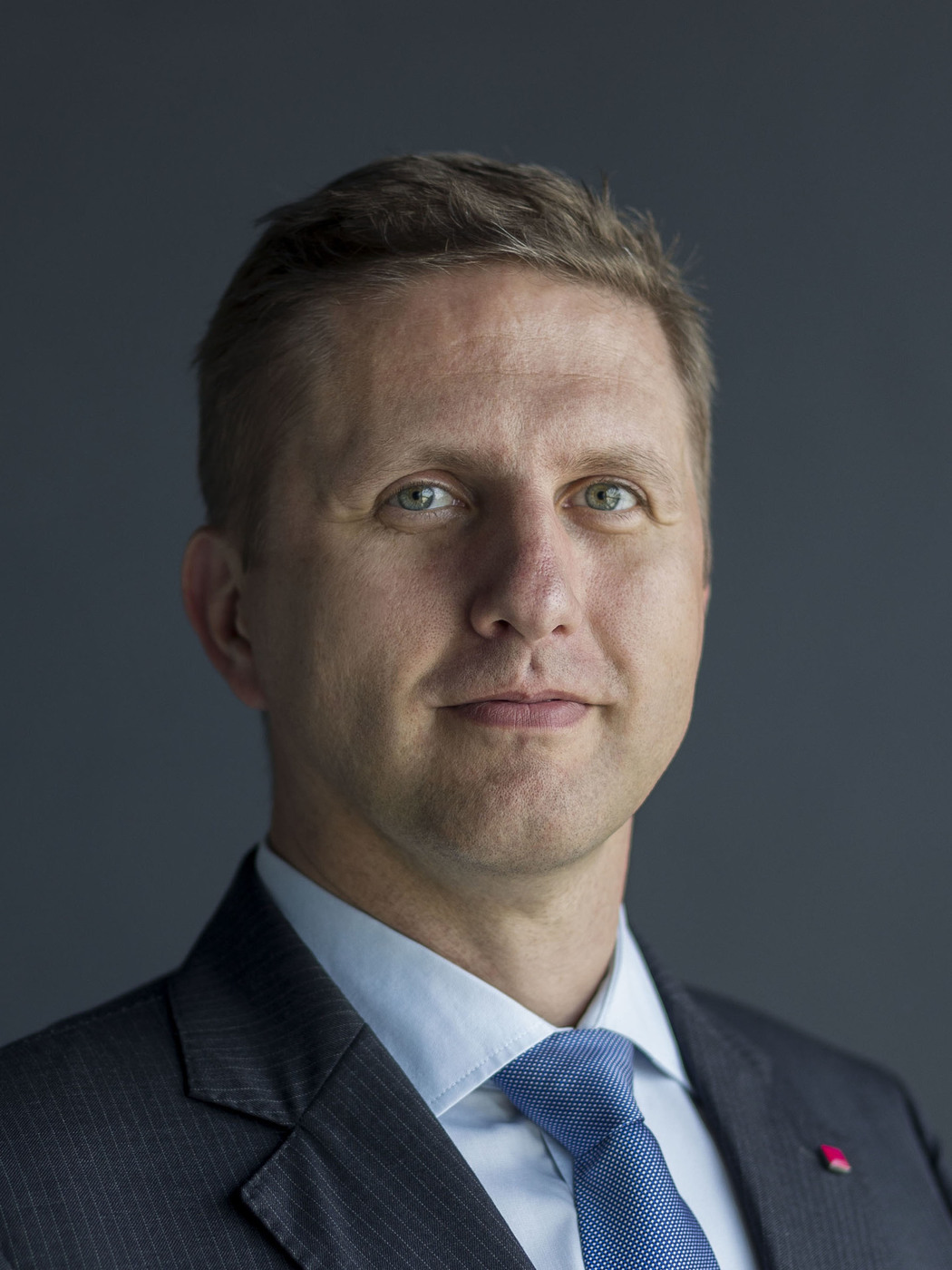What is the difference now? This revolution does not depend on material investment, only data. The new data-driven business culture does not follow hierarchical structures or corporate governance. New culture comes to disrupt – think of “shared” and “on-demand” economies. This new way of doing business requires new competences, new self-confidence. Data is the modern business currency – just consider disputes on influencing the US elections through social networks. Data is bringing down the borders and raising the stakes for competitiveness. What will be the role of Slovakia in this data-driven global reshaping of the economy? Do we pay attention today to the skills and technologies our companies and people need to master to ensure our country is not left behind?
In its “Future of Jobs” report, the World Economic Forum predicted up to seven million of today’s jobs at risk in the developed world due to automation and disintermediation. The change will hit manufacturing, but it will hit administration twice as strongly! On the other hand, the report predicts an increase of two million new jobs in engineering, design, computing and analytics. Fortunately for current employees, investment in re-skilling is among the top strategic priorities in companies. However, not so in schools – as shown in a recent study of the Republic Union of Employers, Slovakia is lagging behind V-4, EU or OECD – most notably in the overall literacy of 20-35 year-olds. University company collaboration in Slovakia scores 50% lower compared to the EU and we have an uncompetitive structure of educational programs – too few vocational/dual students at the secondary level, too many at the master’s level and too few pursuing bachelor’s degrees. Our students spend a year longer studying compared to OECD averages…
Based on my engagement in T-Systems development, the IT Association, AmCham’s BSC Forum, Sectorial Education Councils nationally and in the Košice region, I want to share with you some thoughts that can help us catch up with the revolution. First, we need to establish a managed relationship between the labor market needs and the structure of educational programs. We must use business data-driven forecasting of future qualification needs, intensify the contacts of educators with their external environment and motivate them to adapt to the market. This is not only about dual education, but also about linking tertiary education to businesses. In Slovakia, 22% of job positions on the market are for graduates with technical qualifications, but only 13% of students graduate in technical subjects.
Secondly, we need flexible education. The uncertainties of the revolution mean we cannot stop learning at the age of 19 or 24, as in the past century. We need to strengthen life-long learning and alternative learning paths. In particular, this applies to digital skills – 90% of workers use some information technology in their jobs. Digital skills are the new differentiator – be it in factory, retail or services. We must prioritize the skills that cannot be mastered (near-term) by artificial intelligence – critical thinking, creativity, social collaboration, problem solving, or design. The world no longer needs graduates for narrowly specialized mass production; the digital economy is about high qualifications and cross-disciplinary competencies.
Thirdly, structural changes lead to financing. Today, the employers’ share in financing life-long education reaches 49% of overall spending. The state with its numerous institutions is very passive. Can we pump more money into education? Yes! The taxpayer today pays 250 million euro annually to fund students in subject areas who can’t find employment on the market! Further sources of funding come from the qualified workforce itself. Statistics from the IT sector show that average monthly payments from the employers to the state grow by 70-100 euro per employee a year after obtaining a new qualification or certificate.
The gap in our education system will not close itself. We, the business leaders, must work together on trying out new ways to influence schools and universities. I admit, this is a bold wish, but the experience of T-Systems Slovakia with post-secondary dual education in IT, with SAP Academy at UPJŠ or practice-oriented pilots with TUKE shows that it is possible to motivate the change. We need to let our voice and our actions be louder, more urgent…
Martin Džbor, Director of Strategy and Member of Board in T-Systems Slovakia, s.r.o.



Follow us